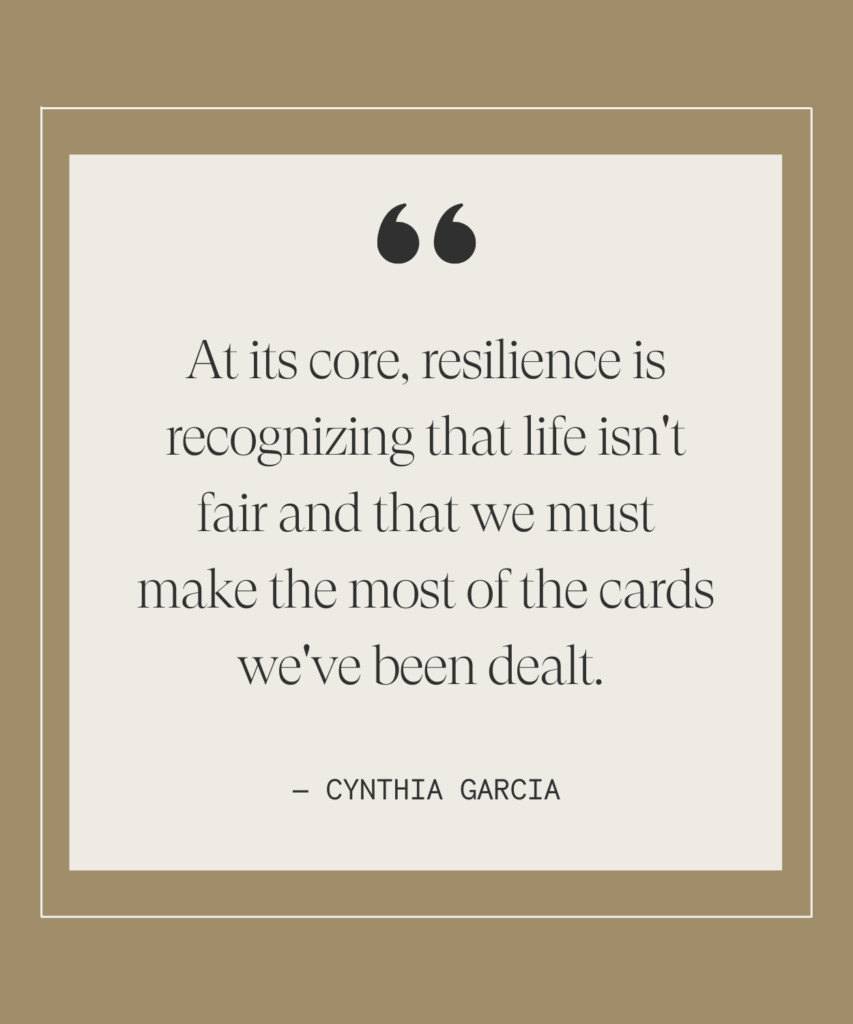For ITN Founder Cynthia Garcia, trauma was an all too familiar experience while growing up.
Cynthia knows from first-hand experience how impacted we are by the traumas we experience in our lives.
This is just one of the reasons why we make it a priority to educate our coaches with understanding signs of trauma and equip them with techniques that can assist with managing the range of emotions that can be triggered by various events in our lives.
This is why the Transformational Nutrition Model is so powerful! Because Cynthia understands that in order to be completely whole and well, we can’t retreat from obstacles that we’ve faced, but instead we must confront and understand how to process the emotions surrounding them in order to live full and healthy lives.
What do you think of when you hear the word, “trauma”?
Most commonly, we tend to think of catastrophic events that hurt those involved. But, trauma is much more common than that.
According to the Center for Non-Violence and Social Justice, the term trauma encompasses a whole range of experiences or situations that are emotionally and painfully distressing and that overwhelm people’s ability to cope, which leaves them powerless.
In fact, trauma can occur from any event that causes emotional pain and distress, or that makes it difficult or impossible to cope with the event.
Some common real life examples include a breakup, a house fire, being cut off in traffic, ending a relationship or marriage, being followed down a dark alley.
Listen to The Transformational Nutrition Podcast on
Apple Podcasts Spotify Stitcher
The more open we can be about the traumatic experiences we’ve dealt with, the more keen we are to understand how they have shaped us, impacted us, and influenced us.
The truth is, whether we like to admit it or not, trauma changes us both in the short-term and in the long-term.
The thing is, though, many survivors of trauma think that they will never be able to fully heal. They think that they are stuck with their past forever. But, that’s not true.
Now, that’s not to say that our trauma won’t impact our lives.
We likely do carry a traumatic event with us forever in our minds and in our bodies, but we can also heal and thrive after our experience with trauma. We can build resilience.
But, how?
- The #1 struggle Cynthia faced after becoming a parent and how it triggered past emotional challenges in her life
- The simple, 4-step method that has helped thousands find relief around toxic emotions triggered by past traumatic events
- Why comparing your trauma to others’ is preventing you from healing
- The unexpected reason that you struggle to move past your trauma (hint, it may deal with your mentality)
- Why numbing your emotions can be just as traumatic as the events that initially caused them
Episode Resources:
- Want to hear more from the ITN student featured in this episode? Connect with Stine!
- Learn more about becoming a Certified Transformational Nutrition Coach
- Visit our website
- Follow us on Instagram
- Follow us on Facebook


+ show Comments
- Hide Comments
Free Resources
Take A Look at the latest from ITN:
Courses
add a comment